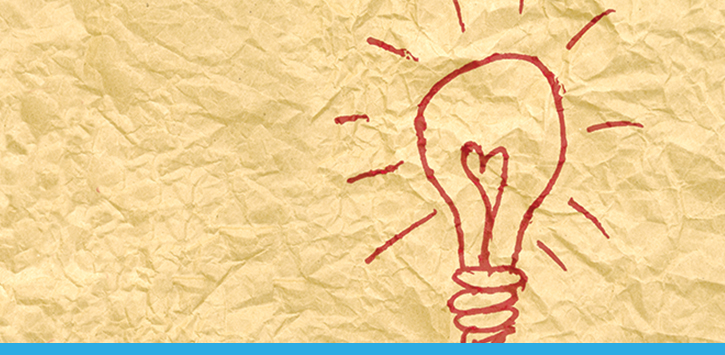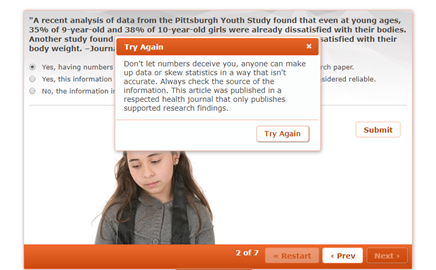Cultivating Critical Thinkers

French philosopher Descartes may have been on to something when he said, “I think therefore I am.”
At FLVS, we want students to not only think, but think critically. Critical thinkers have the ability to improve their thinking through systematic self-assessment and reflection.
Question Everything
Questions drive critical thinking. In the Peer Counseling 2 course, students are taught to ask “Strong Questions” as a way to focus the mind, create new thought patterns, redirect thinking, solve problems, and open up new opportunities. This strategy is embedded throughout the course and is practiced with real-life situations in self-checks and assessments:

Read Between the Lines
When faced with new information, critical thinkers look at things like point of view, bias, assumptions, data, sources, and many other elements of reasoning. In our HOPE course, students are challenged to use a critical eye and analyze how images in the media sometimes send mixed messages about health and fitness.

Give Me One Reason
Critical thinkers know that when faced with an argument or when trying to persuade someone, evidence matters. The HOPE course has students put their critical thinking skills into action by evaluating supporting evidence to determine the validity and reliability of sources. Students assess data and citation information (like author, journal, date of publication, etc.) and decide how the evidence should be used to best support their argument. Through courses like these, students are able to develop an analytical eye, assess information, and build the confidence they need to prepare themselves for the real world.

Post by Russell Driesen, FLVS Curriculum Specialist

Is this content for peer counseling or critical thinking? Seems more geared toward the latter but the first paragraph references peer counseling.
Hi Christina, this blog discusses how students develop critical thinking skills in Peer Counseling 1 and HOPE. In Peer Counseling, students go on an inspiring “Superhero” journey where they develop confidence, build pride in their culture, achieve their goals, and help their peers succeed. They learn how to take action to improve their own lives, manage their time, and resolve conflict by considering differences in personality. You can learn more about Peer Counseling course here: https://www.flvs.net/flex/courses#highschool/1276